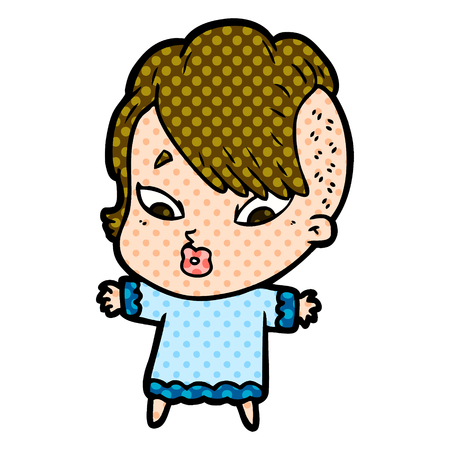1. Understanding Eczema and Common Skin Conditions
Many people experience skin conditions that affect their daily lives, with eczema being one of the most common. Eczema, also known as atopic dermatitis, is a chronic skin condition that causes inflammation, redness, and itching. It can affect people of all ages but is especially common in children. Understanding eczema and other related skin conditions can help individuals manage symptoms and identify potential triggers.
What Is Eczema?
Eczema is an inflammatory skin condition that weakens the skin barrier, making it more susceptible to irritants and allergens. People with eczema often experience dry, itchy patches on their skin that may become red, cracked, or even infected if scratched excessively.
Common Symptoms of Eczema
| Symptom | Description |
|---|---|
| Itching | Persistent itching, which can worsen at night |
| Redness | Inflamed areas that appear red or discolored |
| Dry Skin | Skin feels rough, flaky, or scaly |
| Cracking | Skin may crack or bleed due to dryness |
| Swelling | Affected areas may swell or become irritated |
Other Related Skin Conditions
Eczema is often linked to other skin conditions and allergies. Some individuals may experience multiple conditions simultaneously. Below are some common skin issues related to eczema:
Contact Dermatitis
This occurs when the skin comes into contact with an irritant or allergen, leading to redness, itching, and sometimes blisters.
Psoriasis
A chronic autoimmune condition causing thick, scaly patches on the skin. Unlike eczema, psoriasis tends to have well-defined borders and silvery scales.
Hives (Urticaria)
A sudden outbreak of red, itchy welts on the skin caused by allergic reactions or environmental factors.
Eczema Triggers and Daily Life Impact
Certain factors can trigger eczema flare-ups, making it essential to identify and avoid them whenever possible. These triggers vary from person to person but commonly include:
- Irritants: Harsh soaps, detergents, fragrances, and certain fabrics.
- Allergens: Pollen, pet dander, dust mites, and certain foods.
- Weather Conditions: Cold weather or excessive heat can dry out the skin.
- Stress: Emotional stress can exacerbate symptoms.
- Diet: Some individuals find that dairy, nuts, or eggs trigger flare-ups.
Eczema can significantly impact daily life by causing discomfort and affecting sleep quality. The constant itchiness may lead to difficulty concentrating at school or work. Additionally, visible rashes can sometimes cause self-consciousness or social anxiety.
2. The Connection Between Skin Conditions and Allergies
Many parents notice that their child’s eczema seems to flare up after exposure to certain foods or environmental triggers. But what exactly is the link between skin conditions like eczema and allergies? Scientists have been studying this connection for years, and research shows that there is a strong relationship between the two.
The Science Behind Eczema and Allergies
Eczema, also known as atopic dermatitis, is a chronic inflammatory skin condition that often appears in early childhood. It is commonly associated with a weakened skin barrier, which makes it easier for allergens and irritants to penetrate the skin. This can lead to immune system reactions that cause redness, itching, and inflammation.
Studies suggest that children with eczema are more likely to develop food allergies, asthma, and hay fever—a progression known as the “atopic march.” This occurs because the immune system becomes hypersensitive to certain substances over time.
Common Triggers for Eczema and Allergies
Certain foods and environmental factors can make eczema worse or trigger allergic reactions. Identifying these triggers can help manage symptoms effectively.
| Trigger Type | Examples | Effect on Eczema & Allergies |
|---|---|---|
| Food Allergens | Dairy, eggs, nuts, soy, wheat | May cause rashes, itching, or digestive issues in sensitive individuals |
| Environmental Allergens | Pollen, pet dander, dust mites, mold | Can trigger skin irritation and respiratory symptoms |
| Irritants | Scented soaps, detergents, synthetic fabrics | Might weaken the skin barrier and lead to flare-ups |
| Weather Conditions | Dry air, extreme heat or cold | Affects moisture levels in the skin and increases sensitivity |
The Role of the Skin Barrier in Allergic Reactions
The outermost layer of the skin acts as a protective barrier against harmful substances. In people with eczema, this barrier is compromised, allowing allergens to enter more easily. This can lead to an overactive immune response and increase the risk of developing allergies.
A key protein called filaggrin plays an essential role in maintaining a healthy skin barrier. Studies have found that people with eczema often have mutations in the filaggrin gene, making their skin more prone to dryness and irritation. This genetic factor may explain why some individuals are more susceptible to both eczema and allergies.
The Importance of Early Intervention
If your child has eczema, addressing potential allergy triggers early can help prevent worsening symptoms. Keeping a symptom diary and working with a doctor or allergist can provide valuable insights into what might be causing flare-ups.
Treating eczema promptly with gentle skincare routines, moisturizing frequently, and avoiding known allergens can help strengthen the skin barrier and reduce allergic reactions over time.

3. How the Immune System Plays a Role
Our immune system is designed to protect us from harmful invaders like bacteria and viruses. However, for people with eczema and allergies, the immune system can overreact to harmless substances, leading to inflammation, itching, and flare-ups.
The Immune System’s Overreaction
When allergens or irritants come into contact with the skin, the immune system may mistakenly see them as threats. This triggers an inflammatory response, causing redness, swelling, and itching. In people with eczema, this reaction is often stronger and lasts longer than usual.
How Allergens and Irritants Trigger Flare-Ups
Certain triggers can cause the immune system to react aggressively, making skin conditions worse. Below is a table showing common triggers and how they affect the skin:
| Trigger | How It Affects the Skin |
|---|---|
| Pollen | Can cause itching and redness, especially in sensitive individuals. |
| Dust Mites | Irritate the skin and lead to flare-ups in those with eczema. |
| Certain Foods (e.g., dairy, nuts) | May trigger allergic reactions that worsen skin inflammation. |
| Harsh Soaps & Detergents | Strip away natural oils, making the skin more vulnerable to irritation. |
| Pet Dander | Can trigger itching and rashes due to an allergic response. |
The Role of Inflammation
The body releases chemicals like histamines when it detects allergens or irritants. These chemicals lead to inflammation, which can make eczema symptoms worse. This is why people with both eczema and allergies often experience more frequent flare-ups.
The Cycle of Flare-Ups
This immune response creates a cycle where irritation leads to scratching, which damages the skin barrier. A weakened barrier allows more allergens and bacteria to enter, triggering even more inflammation. Breaking this cycle is key to managing eczema effectively.
4. Managing Symptoms Through Lifestyle and Diet
Managing eczema and allergy symptoms often requires a combination of lifestyle adjustments, dietary changes, and a consistent skincare routine. By making small but meaningful changes, you can help reduce flare-ups and keep symptoms under control.
Dietary Adjustments to Reduce Flare-Ups
Certain foods can either trigger or soothe eczema and allergy symptoms. Keeping track of what your child eats and how their skin reacts can help identify potential food-related triggers.
| Foods to Avoid | Skin-Friendly Foods |
|---|---|
| Dairy (milk, cheese, yogurt) | Oatmeal (helps soothe inflammation) |
| Nuts (especially peanuts) | Fatty fish (rich in omega-3s for skin health) |
| Soy-based products | Berries (high in antioxidants) |
| Eggs | Leafy greens (help fight inflammation) |
| Processed or sugary foods | Smoothies with coconut milk (hydrating and anti-inflammatory) |
Skincare Routine to Protect Sensitive Skin
A gentle and consistent skincare routine is essential for managing eczema-prone skin. Harsh soaps, hot showers, or skipping moisturization can make symptoms worse.
Steps for an Effective Skincare Routine:
- Cleansing: Use a mild, fragrance-free cleanser instead of regular soap.
- Moisturizing: Apply a thick moisturizer right after bathing to lock in moisture.
- Avoiding Irritants: Choose hypoallergenic skincare products without alcohol or artificial fragrances.
- Bathing Tips: Keep baths lukewarm and limit them to 10–15 minutes.
- Cotton Clothing: Dress your child in soft, breathable fabrics like cotton to prevent irritation.
Environmental Changes to Prevent Flare-Ups
The environment plays a significant role in eczema and allergy management. Small adjustments at home can help prevent irritation and discomfort.
Tips for Creating an Allergy-Friendly Home:
- Avoid Harsh Detergents: Use fragrance-free, hypoallergenic laundry detergents.
- Mite-Free Bedding: Wash sheets regularly in hot water to remove dust mites.
- Add a Humidifier: Keep indoor air moist to prevent dry skin from worsening.
- No Smoking Indoors: Secondhand smoke can trigger allergies and skin reactions.
- Pollen Control: Keep windows closed during high pollen seasons and use air purifiers if necessary.
Tackling eczema and allergy symptoms through diet, skincare routines, and environmental adjustments can significantly improve comfort and reduce flare-ups. By making thoughtful lifestyle changes, you can create a soothing environment that helps protect sensitive skin.
5. Treatment Options: Medical and Natural Approaches
Managing eczema and allergies often requires a combination of treatments. Some individuals find relief with over-the-counter solutions, while others need prescription medications or natural remedies. Below, we’ll explore different treatment options that can help alleviate symptoms and improve skin health.
Over-the-Counter Remedies
Many people with mild eczema or allergic skin reactions can find relief using readily available over-the-counter (OTC) treatments. These products help soothe irritated skin and reduce itching.
| Type | Examples | Benefits |
|---|---|---|
| Moisturizers | Cetaphil, Eucerin, Aquaphor | Hydrate skin and prevent dryness |
| Anti-Itch Creams | Hydrocortisone, Calamine Lotion | Reduce itching and inflammation |
| Antihistamines | Benadryl, Claritin, Zyrtec | Help relieve allergic reactions and itching |
Prescription Medications
If OTC treatments aren’t enough, a doctor may recommend prescription-strength medications to manage eczema and allergy-related skin conditions more effectively.
- Topical Steroids: Stronger than OTC hydrocortisone, these reduce inflammation and itching.
- Immunosuppressants: Medications like tacrolimus and pimecrolimus help control severe eczema by calming the immune response.
- Biologic Drugs: Injectable treatments such as Dupixent target the underlying causes of eczema for long-term relief.
Natural and Holistic Approaches
Some people prefer natural remedies to manage their symptoms. While they may not replace medical treatments, they can complement other therapies and provide additional relief.
Avoiding Triggers
Identifying and avoiding allergens or irritants—such as certain fabrics, detergents, or foods—can prevent flare-ups.
Oatmeal Baths
A colloidal oatmeal bath can soothe itchy, inflamed skin and provide moisture.
Coconut Oil & Other Natural Moisturizers
Coconut oil, shea butter, and aloe vera are popular natural alternatives for keeping skin hydrated.
Dietary Adjustments
Eating an anti-inflammatory diet rich in omega-3 fatty acids (found in fish, flaxseeds, and walnuts) may help reduce symptoms.
Finding the Right Treatment Plan
No single treatment works for everyone. Often, managing eczema and allergy-related skin conditions requires a mix of approaches. Consulting with a healthcare provider can help determine the best course of action based on individual needs.
6. Preventative Measures and Long-Term Care
Taking steps to prevent eczema and allergies can make a big difference in your childs skin health. While genetics play a role, there are many lifestyle choices that can help minimize risks and keep skin healthy in the long run.
Daily Skincare Routine
A good skincare routine is essential for preventing eczema flare-ups and reducing the risk of allergies. Keeping the skin hydrated and protected helps strengthen the skin barrier.
| Step | What to Do |
|---|---|
| Cleansing | Use a gentle, fragrance-free cleanser and lukewarm water to avoid irritation. |
| Moisturizing | Apply a thick, fragrance-free moisturizer immediately after bathing to lock in moisture. |
| Avoiding Irritants | Choose hypoallergenic products and avoid harsh soaps, detergents, and perfumes. |
| Dressing Smart | Wear soft, breathable fabrics like cotton to reduce skin irritation. |
The Role of Diet in Skin Health
A healthy diet supports strong skin and may help reduce the likelihood of developing allergies. Some foods promote better skin hydration and immune function.
- Omega-3 Fatty Acids: Found in fish, flaxseeds, and walnuts, these support skin barrier health.
- Probiotics: Yogurt, kefir, and fermented foods help balance gut bacteria, which may impact allergies.
- Avoiding Common Triggers: If food allergies are suspected, consult with a doctor before eliminating foods from the diet.
Avoiding Environmental Triggers
Certain environmental factors can worsen eczema symptoms or increase allergy risks. Reducing exposure to common triggers can help maintain long-term skin health.
Common Triggers and How to Minimize Exposure
| Trigger | How to Reduce Exposure |
|---|---|
| Pollen | Keep windows closed during high pollen seasons and use air purifiers indoors. |
| Dust Mites | Wash bedding frequently in hot water and use dust-proof mattress covers. |
| Pets | Bathe pets regularly and keep them out of bedrooms if they trigger reactions. |
| Mold | Use dehumidifiers in damp areas and clean mold-prone spots often. |
The Importance of Early Intervention
If your child shows signs of eczema or allergies, early intervention can prevent symptoms from worsening. Consulting with a dermatologist or allergist can help identify triggers and create a personalized care plan.
When to Seek Medical Advice
- If eczema becomes infected (redness, pus, or swelling).
- If over-the-counter treatments don’t improve symptoms.
- If suspected food allergies cause hives or breathing difficulties.
By following these preventative measures, you can help protect your childs skin health while minimizing the risk of developing eczema and allergies over time.


